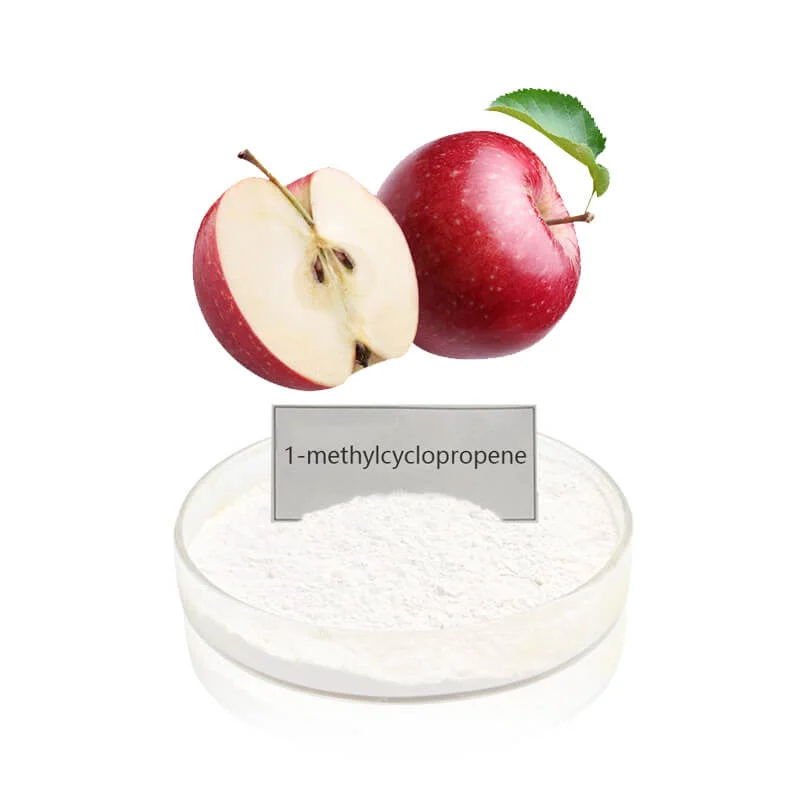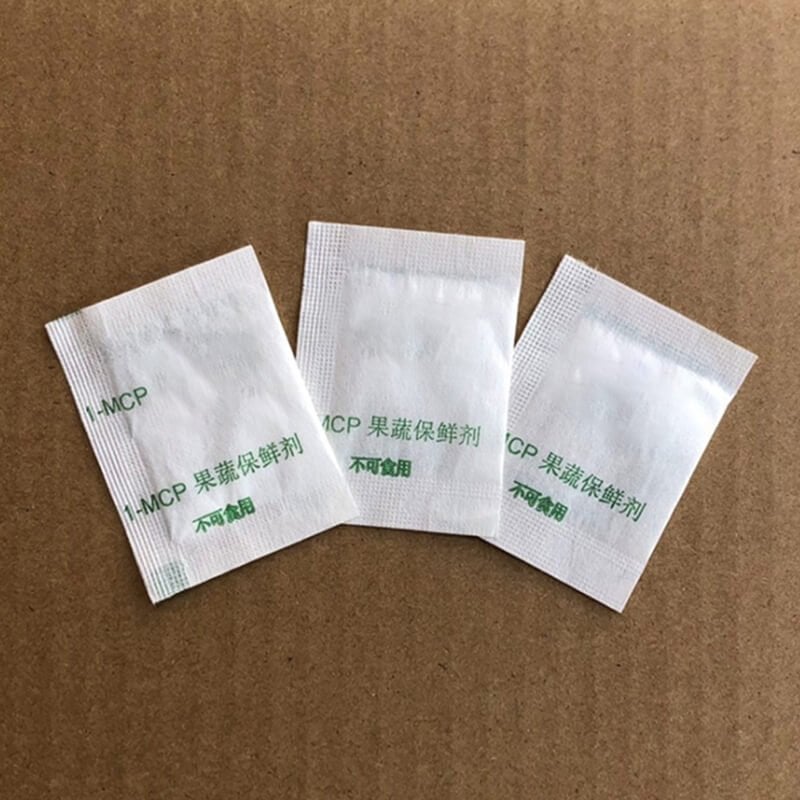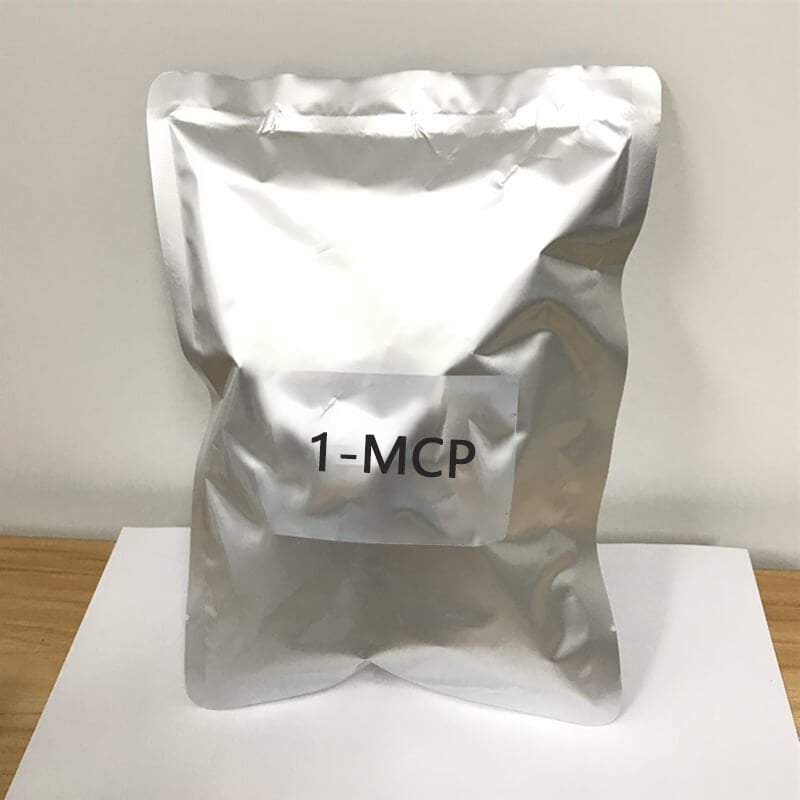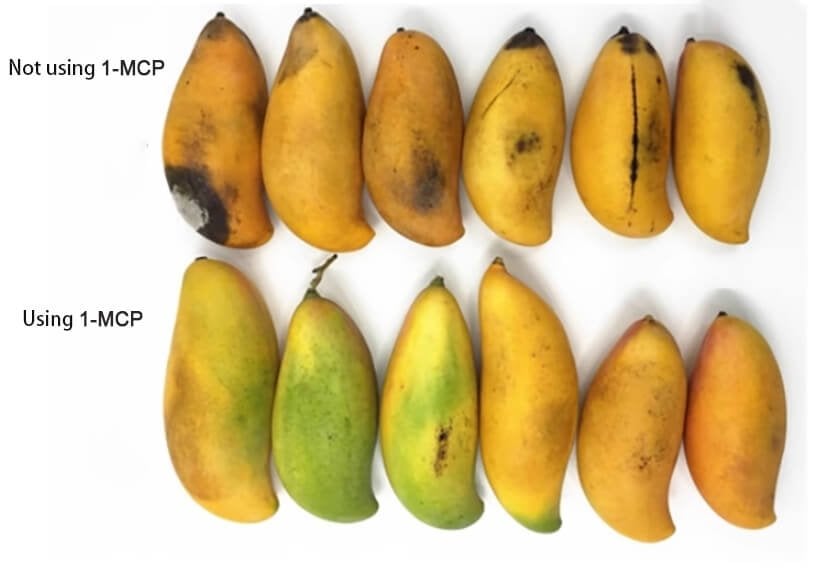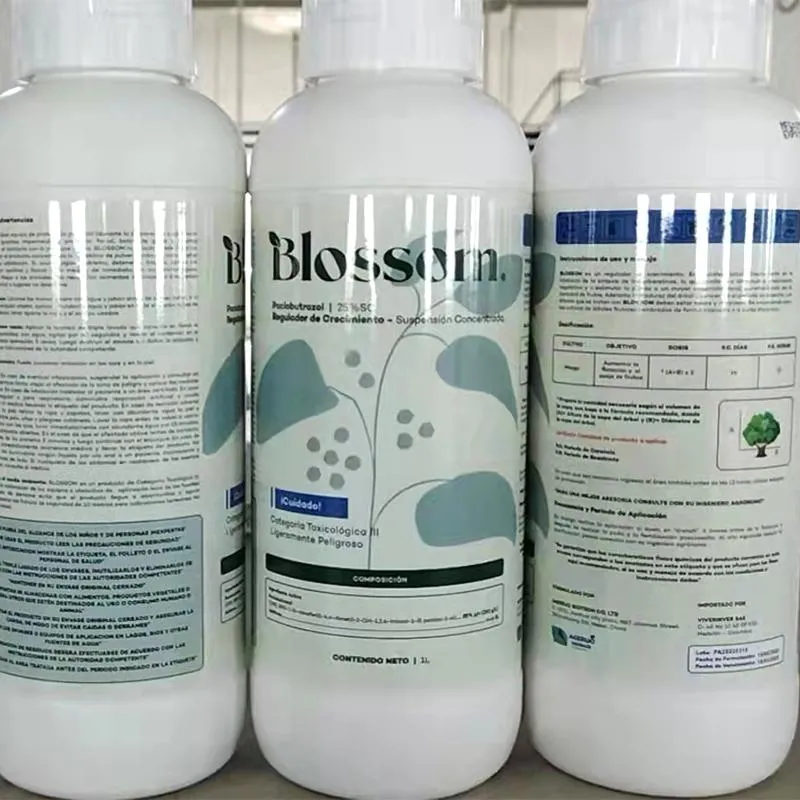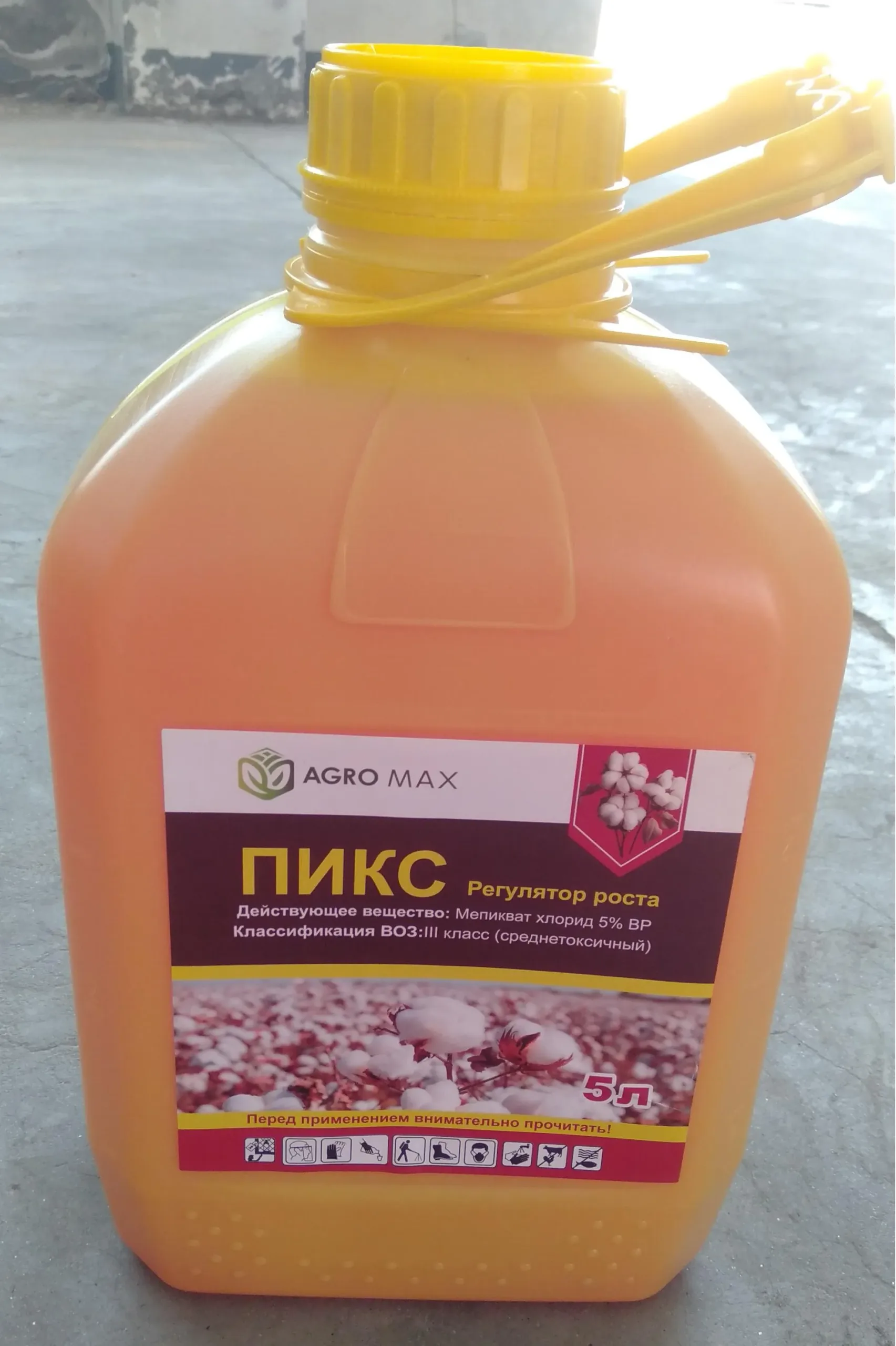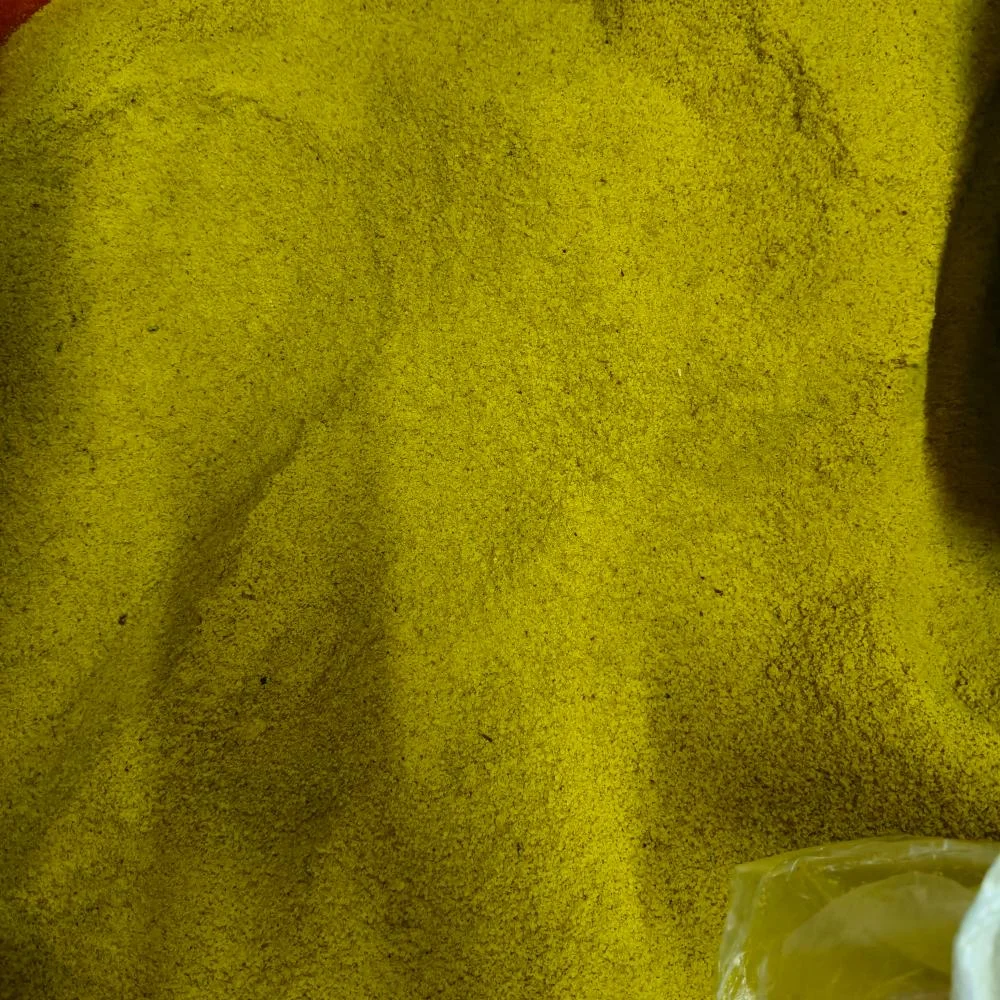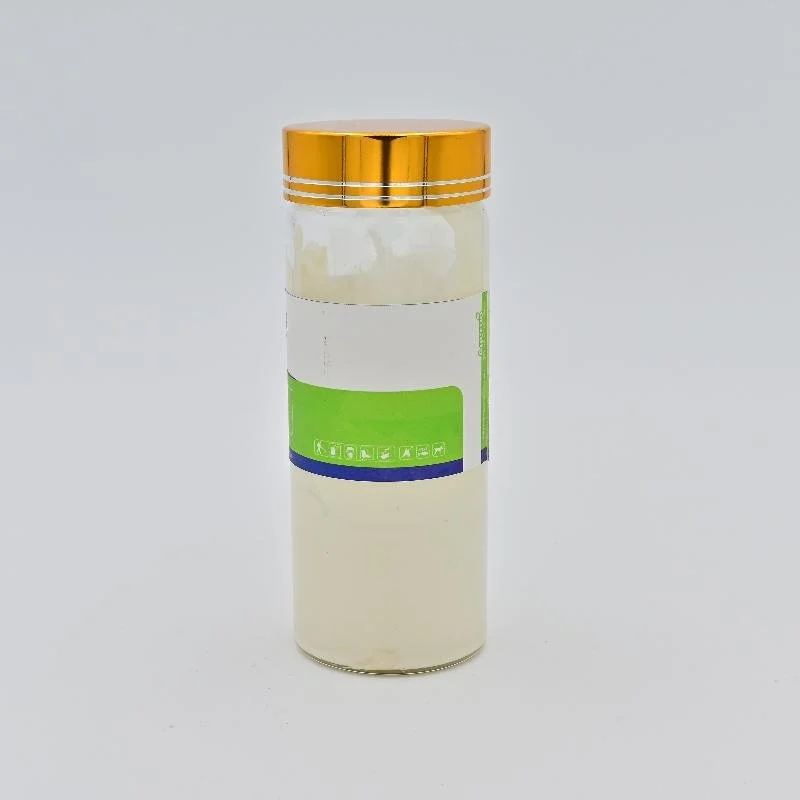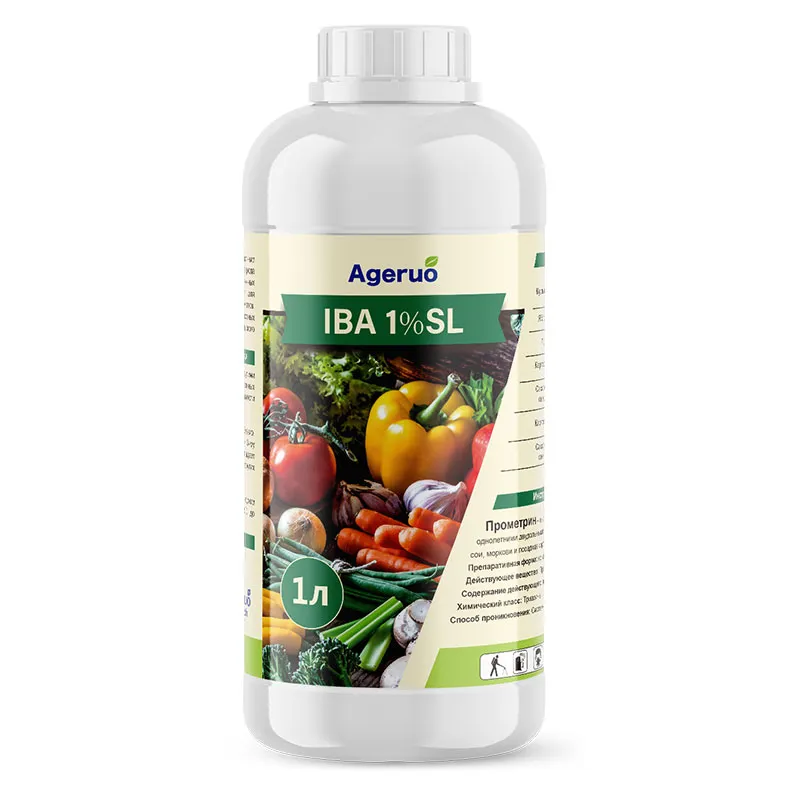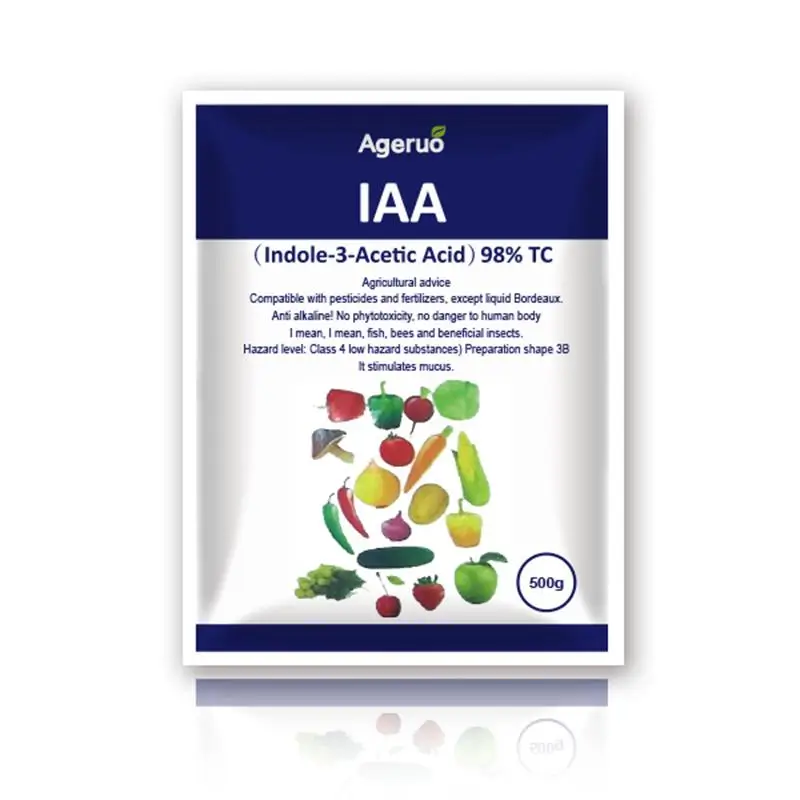1-Methylcyclopropene (1-MCP) | Plant Growth Regulator
Ethylene Inhibitor for Fruit and Vegetable Freshness
1-MCP (1-Methylcyclopropene) is a highly effective ethylene action inhibitor used to delay ripening, extend shelf life, and reduce postharvest losses in fruits, vegetables, and flowers. By binding to ethylene receptors, 1-MCP blocks the natural ripening hormone, keeping produce firm, flavorful, and marketable for longer periods during storage, transport, and retail display.
It is especially valuable for exporters, cold storage facilities, and packers handling ethylene-sensitive crops such as apples, pears, peaches, kiwifruit, bananas, mangoes, tomatoes, and even cut flowers.
- Active Ingredient: 1-Methylcyclopropene (1-MCP)
- Formulations Available:
- 3.3% DP (dry powder)
- 2% DP (dry powder)
- Solid tablets or slow-release sachets (on request)
- Mode of Action: Blocks ethylene receptors in plant cells
- Application Method: Airtight fumigation (0.5–1 ppm for 12–24 hours)
- Typical Use Sites: Cold storage rooms, shipping containers, ripening chambers
- Applicable Crops: Apples, pears, melons, mangoes, bananas, grapes, peppers, broccoli, mushrooms, orchids, fresh-cut flowers, and more
Whether you’re shipping apples across the ocean or extending the life of greenhouse produce, 1-MCP products help keep your harvest fresher, longer, and more profitable.
- Designed for Professional Buyers & Bulk Orders
- This product is available for business purchase and large-scale distribution.
- We support custom packaging, labeling, and formulation to meet your market needs.
- Let’s build your brand together.

About 1-Methylcyclopropene (1-MCP) | Plant Growth Regulator
About 1-Methylcyclopropene (1-MCP) | Plant Growth Regulator
| Active Ingredient | 1-Methylcyclopropene (1-MCP) |
| Available Formulations | 3.3% DP, 2% DP, Tablets, Sachets |
| Mode of Action | Binds to ethylene receptors and blocks ripening signal |
| Application Method | Airtight fumigation (0.5–1.0 ppm for 12–24 hours) |
| Application Sites | Cold storage rooms, shipping containers, ripening chambers |
| Target Crops | Apples, pears, bananas, mangoes, tomatoes, broccoli, orchids, flowers |
| Key Benefits |
|
| Recommended Conditions | Temperature: 5–25°C, Humidity: 60–95%, Airtight environment |
| Common Packaging | Foil sachets (50mg–500mg) Plastic jars (100g–1kg) Tablets/disks (1–5g) Bulk cartons (OEM/B2B) |
| OEM Services |
|
| Storage & Shelf Life | Store at 5–25°C, sealed & dry. Shelf life: 12–24 months |
| MOQ | Flexible (from trial packs to bulk) |
| Sample | Available upon request for evaluation and registration |
How 1-MCP Works: Blocking Ethylene to Delay Ripening and Extend Shelf Life
What is 1-MCP?
1-MCP (1-Methylcyclopropene) is a synthetic plant growth regulator that inhibits the effects of ethylene, a natural hormone responsible for ripening, senescence, and spoilage in many fruits, vegetables, and flowers.
Ethylene: The Invisible Trigger of Post-Harvest Loss
Ethylene is a gas released by produce during storage and shipping that accelerates:
- Softening
- Color change
- Aroma development
- Decay and yellowing
- Over-ripening and senescence
This means that without control, ethylene exposure leads to shortened shelf life and higher losses—especially during long-distance export or in warm climates.
1-MCP’s Mode of Action
1-MCP works by binding to ethylene receptors in plant cells—essentially “blocking the switch” that ethylene uses to signal ripening.
| Step | Function |
|---|---|
| 1. Fumigation | 1-MCP is released into an airtight environment with the produce |
| 2. Receptor Binding | 1-MCP binds irreversibly to ethylene receptors on the fruit surface |
| 3. Signal Disruption | Ethylene can no longer trigger its normal physiological effects |
| 4. Result | Ripening slows significantly, respiration rate drops, and freshness is preserved |
This mechanism makes 1-MCP an ethylene inhibitor, not an ethylene remover. It prevents ethylene from being detected, not from being produced.
Systemic Protection Without Residue
- 1-MCP acts in the air—not on the fruit surface
- Leaves no detectable residue, making it suitable for fresh markets with strict MRL limits
- Compatible with organic production (in some jurisdictions)
That’s why 1-MCP apples and 1-methylcyclopropene-treated fruit arrive in better shape, with more time to sell and less spoilage at destination.
Target Crops and Applications: Where 1-MCP Makes a Measurable Difference
1-MCP is used across a wide range of fruits, vegetables, mushrooms, and ornamentals—especially those that are sensitive to ethylene exposure. Whether applied in cold storage, shipping containers, or ripening rooms, 1-MCP products help maintain firmness, reduce decay, and extend market window.
Fruits: Preserving Color, Texture, and Shelf Life
| Crop | Benefits of 1-MCP Treatment |
|---|---|
| Apples | Prevents softening, maintains crunch and color; widely used in long-term CA (Controlled Atmosphere) storage |
| Pears | Delays internal browning and mealiness; slows loss of firmness |
| Peaches & Nectarines | Delays over-ripening and shriveling; ideal for export shipments |
| Bananas | Reduces premature ripening during ocean transport |
| Kiwifruit | Maintains firmness; reduces ethylene-triggered rapid softening |
| Mangoes | Controls uneven ripening and skin breakdown during transit |
| Citrus (Oranges, Lemons) | Delays rind aging and preserves skin brightness |
| Grapes | Reduces stem browning and dehydration during cold storage |
| Melons (Cantaloupe, Honeydew) | Delays aroma development and over-softening |
Vegetables: Extending Marketability
| Crop | Use Case |
|---|---|
| Tomatoes | Keeps fruit firm and slows color change during transit |
| Cucumbers & Peppers | Reduces yellowing and shriveling in export cartons |
| Broccoli & Asparagus | Delays yellowing and head softening |
| Chili Peppers | Maintains skin strength and visual appeal |
| Mushrooms (King oyster, shiitake) | Delays browning and cap opening in cold chain |
Floriculture: Protecting Visual Appeal
| Product | Effect |
|---|---|
| Orchids, Cut Flowers | Delays petal drop and yellowing; improves vase life |
| Fresh-cut greens | Maintains color and slows ethylene-induced deterioration |
1-MCP and Export Supply Chains
- Used in pre-shipment fumigation chambers to preserve quality
- Essential for controlled atmosphere (CA) storage of apples and pears
- Helps fruits arrive in premium condition even after 4–6 weeks of shipping
- Can be applied in containerized fumigation units during loading
If you export or store high-value perishables, 1-MCP ensures your crop stays market-ready longer—with less waste, less shrinkage, and more profit.
Application Method and Dosage: How to Use 1-MCP Effectively
1-MCP products are typically applied via airtight fumigation, allowing the active gas to circulate and bind to ethylene receptors on fruit and vegetable surfaces. This process must be conducted in sealed environments—such as cold storage rooms, shipping containers, or ripening chambers—to ensure uniform exposure.
Standard Application Parameters
| Parameter | Recommendation |
|---|---|
| Concentration | 0.5–1.0 ppm of 1-MCP in enclosed space |
| Exposure Time | 12–24 hours depending on temperature and commodity |
| Optimal Temperature | 5°C to 25°C (Do not exceed 30°C) |
| Relative Humidity | 60–95% for most fruits and vegetables |
| Treatment Environment | Must be 100% airtight; no airflow during exposure |
Application Procedure (Using 1-MCP Powder or Sachets)
- Prepare the Room or Container
- Seal the chamber fully (cold room, ripening room, container)
- Ensure uniform stacking and good air circulation inside
- Calculate Dosage
- Determine air volume (cubic meters) of the chamber
- Example: For 100 m³ room, use 1-MCP dose to achieve 1.0 ppm
- Release the 1-MCP
- Place the 1-MCP powder sachet or tablet in a water activation tray
- Pour warm water (typically 35–45°C) over the sachet to begin gas release
- Quickly exit and seal the room to contain the gas
- Hold Time
- Keep the space sealed for 12–24 hours depending on commodity
- Avoid opening doors or ventilation during treatment
- Ventilation & Post-Treatment
- After treatment time, ventilate the room thoroughly for 30–60 minutes
- No washing or rinsing required—1-MCP leaves no residue
Special Handling Tips
- Always wear gloves and avoid inhaling direct vapors
- Store 1-MCP powder or 1-MCP sachets in a cool, dry place before use
- Do not use in open-air environments or with airflow—containment is critical
- For small volumes, pre-dosed sachets simplify use and prevent overapplication
Sample Calculation:
For a 500 m³ storage room targeting 0.8 ppm concentration:
- Required active = 0.8 ppm × 500 m³ = 400 mg of 1-MCP gas
- Use appropriate amount of 3.3% DP powder based on formulation ratio
1-MCP treatment is simple, safe, and effective—when done in the right environment with proper dosage.
Advantages and Technical Features: Why 1-MCP Is the Industry Standard for Freshness
From orchard to overseas retail shelf, 1-MCP products help reduce postharvest losses, protect visual and nutritional quality, and improve supply chain flexibility. Here’s why 1-Methylcyclopropene is widely adopted by growers, exporters, and cold storage operators worldwide.
1. Powerful Ethylene Inhibition
- Blocks ethylene perception at the receptor level, not just absorption
- Works on a cellular level, preventing the cascade of ripening signals
- Provides long-lasting freshness without repeated applications
2. No Residue, No Washing Required
- Acts as a gas—no direct contact with fruit or vegetable skin
- Leaves zero visible or chemical residue after treatment
- Compliant with international MRL and food safety standards
Perfect for markets with strict residue limits or premium retail expectations.
3. Versatile Across Crops and Conditions
- Works on a wide range of fruits, vegetables, mushrooms, and cut flowers
- Effective across varied temperatures and humidity levels
- Compatible with storage and shipping at ambient, refrigerated, or controlled atmosphere (CA) conditions
4. Extended Shelf Life = Greater Commercial Value
- Delays softening, yellowing, wilting, decay, and shriveling
- Reduces losses during shipping, customs delays, and retail display
- Increases marketable volume and lowers return rates
5. Easy-to-Use, Flexible Format
- Available in powder sachets, solid tablets, or bulk formulations
- Simple activation with water—no special equipment required
- Ideal for farm packers, storage warehouses, exporters, and retailers
6. OEM & Global Supply Support
- Private label available: multilingual design, custom dose, logo integration
- Full documentation: COA, SDS, usage guides, and field protocol support
- Bulk pricing and flexible MOQ for both established and emerging markets
7. Cost-Efficient & Scalable
- One small sachet treats entire containers or storage rooms
- Low application cost relative to reduced waste and shelf-life extension
- Excellent ROI for high-value perishables like apples, mangoes, berries, and flowers
Whether you’re protecting 1-MCP apples for overseas markets or maintaining color in orchids, this solution offers measurable results with minimal effort.
Formulations and OEM Options: Scalable Solutions for Global Postharvest Needs
1-MCP is available in several user-friendly formats to meet the needs of fresh produce exporters, storage operators, packaging centers, and private-label agrochemical brands. Whether you’re treating a single cold room or outfitting a national supply chain, we provide the right formulation, packaging, and documentation to make your operations seamless.
Available Formulations
| Formulation | Description | Best Use |
|---|---|---|
| 3.3% DP (Dry Powder) | High-purity active content for precise fumigation dosing | Commercial fruit storage, shipping containers |
| 2% DP (Dry Powder) | Balanced for medium-volume fumigation | Small cold rooms or air-tight retail storage |
| 1-MCP Tablets or Disks | Solid-state slow release | Research, floral use, or low-volume sealed crates |
| 1-MCP Sachets | Pre-measured water-activated packs | Plug-and-play use in shipping or ripening chambers |
All formulations are designed for clean release, stable storage, and efficient activation in commercial environments.
Packaging Options
| Pack Type | Available Sizes | Suitable For |
|---|---|---|
| Foil Sachets | 50mg, 100mg, 250mg, 500mg | Pre-measured for 10–100 m³ chambers |
| Plastic Jars | 100g, 500g, 1kg powder | For custom dosing by technical users |
| Tablets/Disks | 1g, 2g, 5g | For cut flower or crate-sized applications |
| Bulk Cartons | OEM & B2B orders | Agricultural distributors, smartfresh equivalents |
All packaging includes:
- Humidity-proof, gas-tight sealing
- Printed or blank labels (OEM-ready)
- Batch tracking & shelf-life markings
- Export-compliant GHS hazard labeling
OEM / Private Label Services
We support agrochemical distributors and fruit industry suppliers with full white-label customization:
- Custom labels, logos, and colors
- Multi-language printing (English, Spanish, French, Arabic, Chinese, etc.)
- Product documentation support (COA, SDS, technical specs, registration files)
- Flexible MOQ: from trial batch to large-scale volume
- Anti-counterfeit options: QR traceability, hologram stickers, serialized codes
Whether you need a branded 1-MCP smartfresh equivalent or a custom solution for your citrus line—we deliver on time, to spec, and ready to perform.
Storage, Safety, and Environmental Handling
1-MCP is a low-dose, high-efficiency postharvest solution—but like all ethylene inhibitors and gas-releasing agents, it must be handled and stored correctly to ensure both product stability and operational safety.
Safe Storage Guidelines
| Factor | Instruction |
|---|---|
| Temperature | Store between 5°C and 25°C in a cool, dry place |
| Humidity | Keep sealed and protect from moisture before use (especially powders and sachets) |
| Light | Avoid prolonged exposure to direct sunlight |
| Packaging Integrity | Do not open pouches until ready to use; maintain original sealing |
| Shelf Life | Typically 12–24 months, depending on formulation and storage conditions |
Moisture-activated sachets should only be opened immediately before application. Premature exposure will trigger gas release and deactivate the product.
Safety and Handling Measures
- Wear gloves and protective mask when handling powder or preparing activation trays
- Avoid direct inhalation of released 1-MCP gas
- Use only in sealed, well-controlled environments (no open-air use)
- Wash hands thoroughly after handling sachets or jars
- Keep out of reach of children, pets, and non-trained personnel
First Aid and Emergency
| Incident | First Response |
|---|---|
| Inhalation | Move to fresh air; seek medical attention if discomfort occurs |
| Skin contact | Wash with water and soap; remove contaminated clothing |
| Eye contact | Rinse cautiously with water for several minutes |
| Ingestion (rare) | Do not induce vomiting; seek medical assistance |
Environmental Considerations
- 1-MCP is non-toxic to plants, soil, and water when used as directed
- Leaves no environmental residue after use
- Empty sachets or packaging can be disposed as solid waste after triple rinse or gas release
- Do not release unused product in open-air spaces or near ventilation systems
Transport and Regulatory Compliance
- Classified as non-flammable and non-corrosive
- Transported as agricultural chemical (dry formulation)—not gas or liquid
- UN and GHS compliant labels on all export packaging
- Compatible with air, sea, and land freight routes; SDS and COA provided
When properly stored and used, 1-MCP chemical offers a safe, clean, and powerful way to control ethylene without compromising environmental safety or worker health.
FAQ & Buyer’s Guide
What is 1-MCP and how does it work?
1-MCP (1-Methylcyclopropene) is an ethylene inhibitor that blocks the hormone receptors in fruits and vegetables, delaying ripening, softening, and decay. It acts as a gas in sealed environments, helping preserve firmness, color, and freshness.
What are 1-MCP products used for?
1-MCP is widely used on:
- Apples, pears, kiwifruit, bananas, mangoes
- Vegetables like tomatoes, peppers, broccoli
- Cut flowers and mushrooms
It’s applied postharvest to extend storage life and reduce losses during shipping.
How is 1-MCP applied?
- Place 1-MCP sachets or tablets in a sealed room or container
- Activate with warm water (if powder or sachet)
- Hold the room sealed for 12–24 hours
- Air out afterward—no rinsing needed, no residue left
Is 1-MCP safe?
Yes. It’s:
- Non-toxic, non-corrosive, and safe when used correctly
- Leaves no chemical residue on treated crops
- Approved in major markets under strict residue regulations (EU, US, LATAM, Asia)
What is the difference between 3.3% DP and 2% DP?
Both are dry powder formulations:
- 3.3% DP: Higher concentration, ideal for large-scale cold storage
- 2% DP: Medium concentration, suitable for small rooms or short-term use
We also offer 1-MCP sachets and slow-release tablets based on your storage environment.
Can I add 1-MCP to fruit wax?
Research is ongoing into microencapsulated 1-MCP for wax coating integration, but current commercial use is based on gas-phase fumigation only. Please consult for updates if you’re in postharvest R&D.
Where can I buy 1-MCP? What is the price?
We offer:
- 1-MCP sachets and powder in customizable doses
- OEM/private label options with your brand and documentation
- Flexible MOQ and FOB/CIF pricing based on destination
1-MCP price depends on:
- Product strength (e.g., 3.3% DP vs. 2% DP)
- Quantity and packaging type
- Delivery location and required documentation
What support do you provide?
We offer:
- COA, SDS, TDS, and application guides
- OEM branding and multilingual packaging
- Logistic coordination and export compliance
- Technical training for new users or distributors
Start Fresh with 1-MCP
Whether you’re a packhouse manager, importer, or agricultural brand owner, our 1-MCP solutions help you protect your produce, reduce waste, and meet premium quality standards in local and global markets.
Contact us now to request samples, get a quote, or launch your own 1-MCP product line.
| Active Ingredient | 1-Methylcyclopropene (1-MCP) |
| Available Formulations | 3.3% DP, 2% DP, Tablets, Sachets |
| Mode of Action | Binds to ethylene receptors and blocks ripening signal |
| Application Method | Airtight fumigation (0.5–1.0 ppm for 12–24 hours) |
| Application Sites | Cold storage rooms, shipping containers, ripening chambers |
| Target Crops | Apples, pears, bananas, mangoes, tomatoes, broccoli, orchids, flowers |
| Key Benefits |
|
| Recommended Conditions | Temperature: 5–25°C, Humidity: 60–95%, Airtight environment |
| Common Packaging | Foil sachets (50mg–500mg) Plastic jars (100g–1kg) Tablets/disks (1–5g) Bulk cartons (OEM/B2B) |
| OEM Services |
|
| Storage & Shelf Life | Store at 5–25°C, sealed & dry. Shelf life: 12–24 months |
| MOQ | Flexible (from trial packs to bulk) |
| Sample | Available upon request for evaluation and registration |
How 1-MCP Works: Blocking Ethylene to Delay Ripening and Extend Shelf Life
What is 1-MCP?
1-MCP (1-Methylcyclopropene) is a synthetic plant growth regulator that inhibits the effects of ethylene, a natural hormone responsible for ripening, senescence, and spoilage in many fruits, vegetables, and flowers.
Ethylene: The Invisible Trigger of Post-Harvest Loss
Ethylene is a gas released by produce during storage and shipping that accelerates:
- Softening
- Color change
- Aroma development
- Decay and yellowing
- Over-ripening and senescence
This means that without control, ethylene exposure leads to shortened shelf life and higher losses—especially during long-distance export or in warm climates.
1-MCP’s Mode of Action
1-MCP works by binding to ethylene receptors in plant cells—essentially “blocking the switch” that ethylene uses to signal ripening.
| Step | Function |
|---|---|
| 1. Fumigation | 1-MCP is released into an airtight environment with the produce |
| 2. Receptor Binding | 1-MCP binds irreversibly to ethylene receptors on the fruit surface |
| 3. Signal Disruption | Ethylene can no longer trigger its normal physiological effects |
| 4. Result | Ripening slows significantly, respiration rate drops, and freshness is preserved |
This mechanism makes 1-MCP an ethylene inhibitor, not an ethylene remover. It prevents ethylene from being detected, not from being produced.
Systemic Protection Without Residue
- 1-MCP acts in the air—not on the fruit surface
- Leaves no detectable residue, making it suitable for fresh markets with strict MRL limits
- Compatible with organic production (in some jurisdictions)
That’s why 1-MCP apples and 1-methylcyclopropene-treated fruit arrive in better shape, with more time to sell and less spoilage at destination.
Target Crops and Applications: Where 1-MCP Makes a Measurable Difference
1-MCP is used across a wide range of fruits, vegetables, mushrooms, and ornamentals—especially those that are sensitive to ethylene exposure. Whether applied in cold storage, shipping containers, or ripening rooms, 1-MCP products help maintain firmness, reduce decay, and extend market window.
Fruits: Preserving Color, Texture, and Shelf Life
| Crop | Benefits of 1-MCP Treatment |
|---|---|
| Apples | Prevents softening, maintains crunch and color; widely used in long-term CA (Controlled Atmosphere) storage |
| Pears | Delays internal browning and mealiness; slows loss of firmness |
| Peaches & Nectarines | Delays over-ripening and shriveling; ideal for export shipments |
| Bananas | Reduces premature ripening during ocean transport |
| Kiwifruit | Maintains firmness; reduces ethylene-triggered rapid softening |
| Mangoes | Controls uneven ripening and skin breakdown during transit |
| Citrus (Oranges, Lemons) | Delays rind aging and preserves skin brightness |
| Grapes | Reduces stem browning and dehydration during cold storage |
| Melons (Cantaloupe, Honeydew) | Delays aroma development and over-softening |
Vegetables: Extending Marketability
| Crop | Use Case |
|---|---|
| Tomatoes | Keeps fruit firm and slows color change during transit |
| Cucumbers & Peppers | Reduces yellowing and shriveling in export cartons |
| Broccoli & Asparagus | Delays yellowing and head softening |
| Chili Peppers | Maintains skin strength and visual appeal |
| Mushrooms (King oyster, shiitake) | Delays browning and cap opening in cold chain |
Floriculture: Protecting Visual Appeal
| Product | Effect |
|---|---|
| Orchids, Cut Flowers | Delays petal drop and yellowing; improves vase life |
| Fresh-cut greens | Maintains color and slows ethylene-induced deterioration |
1-MCP and Export Supply Chains
- Used in pre-shipment fumigation chambers to preserve quality
- Essential for controlled atmosphere (CA) storage of apples and pears
- Helps fruits arrive in premium condition even after 4–6 weeks of shipping
- Can be applied in containerized fumigation units during loading
If you export or store high-value perishables, 1-MCP ensures your crop stays market-ready longer—with less waste, less shrinkage, and more profit.
Application Method and Dosage: How to Use 1-MCP Effectively
1-MCP products are typically applied via airtight fumigation, allowing the active gas to circulate and bind to ethylene receptors on fruit and vegetable surfaces. This process must be conducted in sealed environments—such as cold storage rooms, shipping containers, or ripening chambers—to ensure uniform exposure.
Standard Application Parameters
| Parameter | Recommendation |
|---|---|
| Concentration | 0.5–1.0 ppm of 1-MCP in enclosed space |
| Exposure Time | 12–24 hours depending on temperature and commodity |
| Optimal Temperature | 5°C to 25°C (Do not exceed 30°C) |
| Relative Humidity | 60–95% for most fruits and vegetables |
| Treatment Environment | Must be 100% airtight; no airflow during exposure |
Application Procedure (Using 1-MCP Powder or Sachets)
- Prepare the Room or Container
- Seal the chamber fully (cold room, ripening room, container)
- Ensure uniform stacking and good air circulation inside
- Calculate Dosage
- Determine air volume (cubic meters) of the chamber
- Example: For 100 m³ room, use 1-MCP dose to achieve 1.0 ppm
- Release the 1-MCP
- Place the 1-MCP powder sachet or tablet in a water activation tray
- Pour warm water (typically 35–45°C) over the sachet to begin gas release
- Quickly exit and seal the room to contain the gas
- Hold Time
- Keep the space sealed for 12–24 hours depending on commodity
- Avoid opening doors or ventilation during treatment
- Ventilation & Post-Treatment
- After treatment time, ventilate the room thoroughly for 30–60 minutes
- No washing or rinsing required—1-MCP leaves no residue
Special Handling Tips
- Always wear gloves and avoid inhaling direct vapors
- Store 1-MCP powder or 1-MCP sachets in a cool, dry place before use
- Do not use in open-air environments or with airflow—containment is critical
- For small volumes, pre-dosed sachets simplify use and prevent overapplication
Sample Calculation:
For a 500 m³ storage room targeting 0.8 ppm concentration:
- Required active = 0.8 ppm × 500 m³ = 400 mg of 1-MCP gas
- Use appropriate amount of 3.3% DP powder based on formulation ratio
1-MCP treatment is simple, safe, and effective—when done in the right environment with proper dosage.
Advantages and Technical Features: Why 1-MCP Is the Industry Standard for Freshness
From orchard to overseas retail shelf, 1-MCP products help reduce postharvest losses, protect visual and nutritional quality, and improve supply chain flexibility. Here’s why 1-Methylcyclopropene is widely adopted by growers, exporters, and cold storage operators worldwide.
1. Powerful Ethylene Inhibition
- Blocks ethylene perception at the receptor level, not just absorption
- Works on a cellular level, preventing the cascade of ripening signals
- Provides long-lasting freshness without repeated applications
2. No Residue, No Washing Required
- Acts as a gas—no direct contact with fruit or vegetable skin
- Leaves zero visible or chemical residue after treatment
- Compliant with international MRL and food safety standards
Perfect for markets with strict residue limits or premium retail expectations.
3. Versatile Across Crops and Conditions
- Works on a wide range of fruits, vegetables, mushrooms, and cut flowers
- Effective across varied temperatures and humidity levels
- Compatible with storage and shipping at ambient, refrigerated, or controlled atmosphere (CA) conditions
4. Extended Shelf Life = Greater Commercial Value
- Delays softening, yellowing, wilting, decay, and shriveling
- Reduces losses during shipping, customs delays, and retail display
- Increases marketable volume and lowers return rates
5. Easy-to-Use, Flexible Format
- Available in powder sachets, solid tablets, or bulk formulations
- Simple activation with water—no special equipment required
- Ideal for farm packers, storage warehouses, exporters, and retailers
6. OEM & Global Supply Support
- Private label available: multilingual design, custom dose, logo integration
- Full documentation: COA, SDS, usage guides, and field protocol support
- Bulk pricing and flexible MOQ for both established and emerging markets
7. Cost-Efficient & Scalable
- One small sachet treats entire containers or storage rooms
- Low application cost relative to reduced waste and shelf-life extension
- Excellent ROI for high-value perishables like apples, mangoes, berries, and flowers
Whether you’re protecting 1-MCP apples for overseas markets or maintaining color in orchids, this solution offers measurable results with minimal effort.
Formulations and OEM Options: Scalable Solutions for Global Postharvest Needs
1-MCP is available in several user-friendly formats to meet the needs of fresh produce exporters, storage operators, packaging centers, and private-label agrochemical brands. Whether you’re treating a single cold room or outfitting a national supply chain, we provide the right formulation, packaging, and documentation to make your operations seamless.
Available Formulations
| Formulation | Description | Best Use |
|---|---|---|
| 3.3% DP (Dry Powder) | High-purity active content for precise fumigation dosing | Commercial fruit storage, shipping containers |
| 2% DP (Dry Powder) | Balanced for medium-volume fumigation | Small cold rooms or air-tight retail storage |
| 1-MCP Tablets or Disks | Solid-state slow release | Research, floral use, or low-volume sealed crates |
| 1-MCP Sachets | Pre-measured water-activated packs | Plug-and-play use in shipping or ripening chambers |
All formulations are designed for clean release, stable storage, and efficient activation in commercial environments.
Packaging Options
| Pack Type | Available Sizes | Suitable For |
|---|---|---|
| Foil Sachets | 50mg, 100mg, 250mg, 500mg | Pre-measured for 10–100 m³ chambers |
| Plastic Jars | 100g, 500g, 1kg powder | For custom dosing by technical users |
| Tablets/Disks | 1g, 2g, 5g | For cut flower or crate-sized applications |
| Bulk Cartons | OEM & B2B orders | Agricultural distributors, smartfresh equivalents |
All packaging includes:
- Humidity-proof, gas-tight sealing
- Printed or blank labels (OEM-ready)
- Batch tracking & shelf-life markings
- Export-compliant GHS hazard labeling
OEM / Private Label Services
We support agrochemical distributors and fruit industry suppliers with full white-label customization:
- Custom labels, logos, and colors
- Multi-language printing (English, Spanish, French, Arabic, Chinese, etc.)
- Product documentation support (COA, SDS, technical specs, registration files)
- Flexible MOQ: from trial batch to large-scale volume
- Anti-counterfeit options: QR traceability, hologram stickers, serialized codes
Whether you need a branded 1-MCP smartfresh equivalent or a custom solution for your citrus line—we deliver on time, to spec, and ready to perform.
Storage, Safety, and Environmental Handling
1-MCP is a low-dose, high-efficiency postharvest solution—but like all ethylene inhibitors and gas-releasing agents, it must be handled and stored correctly to ensure both product stability and operational safety.
Safe Storage Guidelines
| Factor | Instruction |
|---|---|
| Temperature | Store between 5°C and 25°C in a cool, dry place |
| Humidity | Keep sealed and protect from moisture before use (especially powders and sachets) |
| Light | Avoid prolonged exposure to direct sunlight |
| Packaging Integrity | Do not open pouches until ready to use; maintain original sealing |
| Shelf Life | Typically 12–24 months, depending on formulation and storage conditions |
Moisture-activated sachets should only be opened immediately before application. Premature exposure will trigger gas release and deactivate the product.
Safety and Handling Measures
- Wear gloves and protective mask when handling powder or preparing activation trays
- Avoid direct inhalation of released 1-MCP gas
- Use only in sealed, well-controlled environments (no open-air use)
- Wash hands thoroughly after handling sachets or jars
- Keep out of reach of children, pets, and non-trained personnel
First Aid and Emergency
| Incident | First Response |
|---|---|
| Inhalation | Move to fresh air; seek medical attention if discomfort occurs |
| Skin contact | Wash with water and soap; remove contaminated clothing |
| Eye contact | Rinse cautiously with water for several minutes |
| Ingestion (rare) | Do not induce vomiting; seek medical assistance |
Environmental Considerations
- 1-MCP is non-toxic to plants, soil, and water when used as directed
- Leaves no environmental residue after use
- Empty sachets or packaging can be disposed as solid waste after triple rinse or gas release
- Do not release unused product in open-air spaces or near ventilation systems
Transport and Regulatory Compliance
- Classified as non-flammable and non-corrosive
- Transported as agricultural chemical (dry formulation)—not gas or liquid
- UN and GHS compliant labels on all export packaging
- Compatible with air, sea, and land freight routes; SDS and COA provided
When properly stored and used, 1-MCP chemical offers a safe, clean, and powerful way to control ethylene without compromising environmental safety or worker health.
FAQ & Buyer’s Guide
What is 1-MCP and how does it work?
1-MCP (1-Methylcyclopropene) is an ethylene inhibitor that blocks the hormone receptors in fruits and vegetables, delaying ripening, softening, and decay. It acts as a gas in sealed environments, helping preserve firmness, color, and freshness.
What are 1-MCP products used for?
1-MCP is widely used on:
- Apples, pears, kiwifruit, bananas, mangoes
- Vegetables like tomatoes, peppers, broccoli
- Cut flowers and mushrooms
It’s applied postharvest to extend storage life and reduce losses during shipping.
How is 1-MCP applied?
- Place 1-MCP sachets or tablets in a sealed room or container
- Activate with warm water (if powder or sachet)
- Hold the room sealed for 12–24 hours
- Air out afterward—no rinsing needed, no residue left
Is 1-MCP safe?
Yes. It’s:
- Non-toxic, non-corrosive, and safe when used correctly
- Leaves no chemical residue on treated crops
- Approved in major markets under strict residue regulations (EU, US, LATAM, Asia)
What is the difference between 3.3% DP and 2% DP?
Both are dry powder formulations:
- 3.3% DP: Higher concentration, ideal for large-scale cold storage
- 2% DP: Medium concentration, suitable for small rooms or short-term use
We also offer 1-MCP sachets and slow-release tablets based on your storage environment.
Can I add 1-MCP to fruit wax?
Research is ongoing into microencapsulated 1-MCP for wax coating integration, but current commercial use is based on gas-phase fumigation only. Please consult for updates if you’re in postharvest R&D.
Where can I buy 1-MCP? What is the price?
We offer:
- 1-MCP sachets and powder in customizable doses
- OEM/private label options with your brand and documentation
- Flexible MOQ and FOB/CIF pricing based on destination
1-MCP price depends on:
- Product strength (e.g., 3.3% DP vs. 2% DP)
- Quantity and packaging type
- Delivery location and required documentation
What support do you provide?
We offer:
- COA, SDS, TDS, and application guides
- OEM branding and multilingual packaging
- Logistic coordination and export compliance
- Technical training for new users or distributors
Start Fresh with 1-MCP
Whether you’re a packhouse manager, importer, or agricultural brand owner, our 1-MCP solutions help you protect your produce, reduce waste, and meet premium quality standards in local and global markets.
Contact us now to request samples, get a quote, or launch your own 1-MCP product line.

